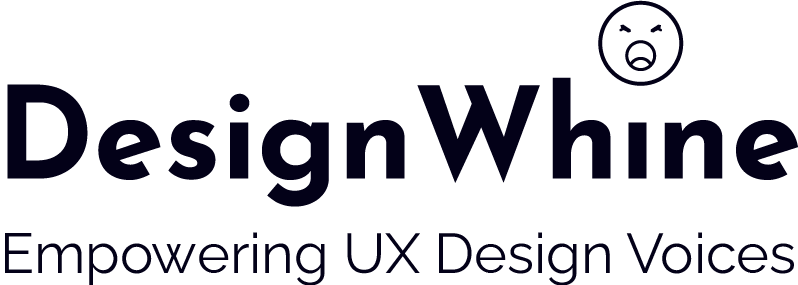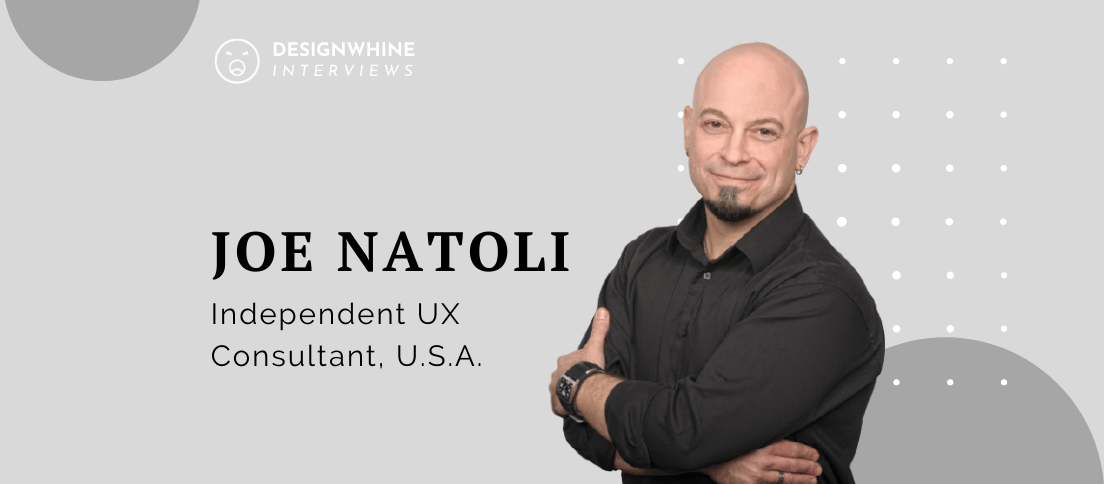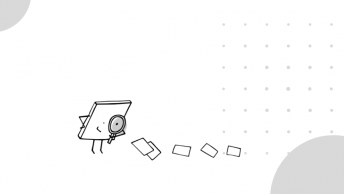Joe Natoli has been preaching and practicing the gospel of User and Customer Experience to Fortune 100, 500 and Government organizations for nearly three decades.
Devoting half of his practice to writing, coaching, and speaking, Joe has been speaking publicly on the topics of User Experience (UX) and Design for 26 years. His bestselling book on UX Strategy and Product Improvement/Development, “Think First”, was published worldwide in 2015
The remaining half of Joe’s practice is dedicated to training Enterprise Design and Development teams, helping them integrate best practices in UX into their product development efforts.
Joe has taught UX in more than 150 organizations and to 200,000+ students and has recently launched the UX 365 Academy, which is made up of on-demand courses, books, resources + video training.
All of his works can be found at: https://learn.givegoodux.com
Joe also publishes free videos, guidebooks, “Making UX Work” podcast and a host of other resources at: https://givegoodux.com/resources
Were you ever a victim of imposter syndrome during your design career? How did you cope with it?
I’ve been wrestling with imposter syndrome my entire life, since I was old enough to be conscious of having artistic talent — and I’m going to be 53, so that’s at least 47 years. I have always had great difficulty internalizing and accepting my self-worth and my success.
And yet, I’ve had an incredible career where I get to pick and choose who I work with. Where the largest organizations in the world seek me out for help. Where every single day of my life, people say the most kind things imaginable to me, sharing in great detail how I’ve helped them, what they were able to accomplish with my guidance or advice, how much it means to them and how they couldn’t have done it without me.
This literally happens every day. All day in some cases. Emails, DMs, social media, public testimonials, etc. You’d think that would absolutely erase any self-doubt I have for good, right?
It doesn’t.
Nothing is ever good enough for that voice. It tells me nearly every day that I’m completely full of shit and people will eventually find out that I don’t really know what I’m doing. It tells me I don’t really know what I’m talking about. It tells me my accomplishments are just the result of blind luck instead of ability.
At the same time, I am living proof that there is a way to put this thing in its place, to deal with it and transcend it and succeed despite it. I don’t possess any unique or special knowledge or power or talent that enabled me to do this; I simply adopted a number of rules and techniques that allowed me to have the kind of life and career I wanted. So if I did it, you can too.
What I learned overall is that there is no “getting rid” of imposter syndrome. Trying to make it go away for good is a fool’s errand. What really has to happen is you need to accept that it’s part of who you are — and MANAGE it. Put it in its place. Prevent it from stopping you.
No matter who you are or where you come from or what your job is, you have to let go of this idea that you have to be perfect — or fearless. There’s no such thing. You are never going to be 100% confident.
I subscribe to what my friend Melanie Spring — one of the most courageously honest people I know — always says: “the impostor can be in the car with you, but it has to sit in the passenger seat. And it is absolutely NOT allowed to put its hands on the wheel.”
Do you think imposter syndrome plagues the UX design community more as compared to other communities? Why?
I think that creative people are especially susceptible to imposter syndrome, yes. Because sensitivity to emotion is a requirement for this job; people who gravitate toward UX are typically extremely compassionate and empathetic and sensitive to others. Think about it: the job is essentially caring enough about what other people are dealign with to want to improve it for them.
And just about every aspect of the job itself invites doubt. When you’re younger, or new to the field, the worry and pressure of being inexperienced is your constant companion. You know, “I don’t know if I have enough experience to weigh in on this…”
Very early on in my career, I was struggling with the same questions. Struggling with imposter syndrome and thinking, “who the heck do I think I am — and what have I gotten myself into?”
Nothing good really started happening until I accepted the truth that I did not have to have all the answers. That the job, in fact, was asking questions. The beginning of any design or UX endeavor is intimidating, because you have no answers, only questions. It’s like the artist staring at that blank canvas or the writer staring at the blank page. That initial step, to begin creating something from nothing, carries great weight and responsibility. So it’s not at all surprising that we feel pressure, stress. Anxiety. Worry. Feeling like you don’t know what you’re doing or maybe you’re not the right person for the job.
But I’m telling you that it Does. Not. Matter.
You do not, cannot and should not be expected to know all the answers; abandon that idea right now. You belong there as much as anybody, and experience has NOTHING to do with being good at uncovering and solving problems. It’s not about knowing everything or having all the answers. Instead, it’s about the willingness to say, in the words of my good friend Doug Collins, “You know what? I don’t know, but I’m going to find out.”
What would be your advise to young designers trying to fight imposter syndrome?
The first part is to manage imposter syndrome is what I said earlier about making peace with the Imposter who lives in your head. When he/she pipes up, you ignore it and do the thing anyway. Say to yourself, to the imposter “look, say what you’re gonna say; I’m doing this anyway.”
The second part is this: whether you’re a junior person, entry-level, new from a related field or an experienced pro still struggling — get comfortable with being uncomfortable. With not knowing.
Get comfortable asking questions. Because the more questions you ask, the better off you and everyone involved is going to be.
To finish this up, a question I get asked a lot is this one: “What’s the one thing you wish you knew or that someone would have told you at the start of your career?”
The answer is essentially what I just said: that you don’t have to know everything, that you don’t have to have all the answers.
I’ve been very privileged to have had conversations with a lot of people who are very famous in a few different walks of life, from musicians to actors to, of course, designers and UXers. And they will all tell you the same thing: that nothing good happened until they made peace with the fact that they didn’t know what the hell they were doing a lot of the time.
That’s the human condition. And you don’t start asking meaningful questions until you make peace with that.









